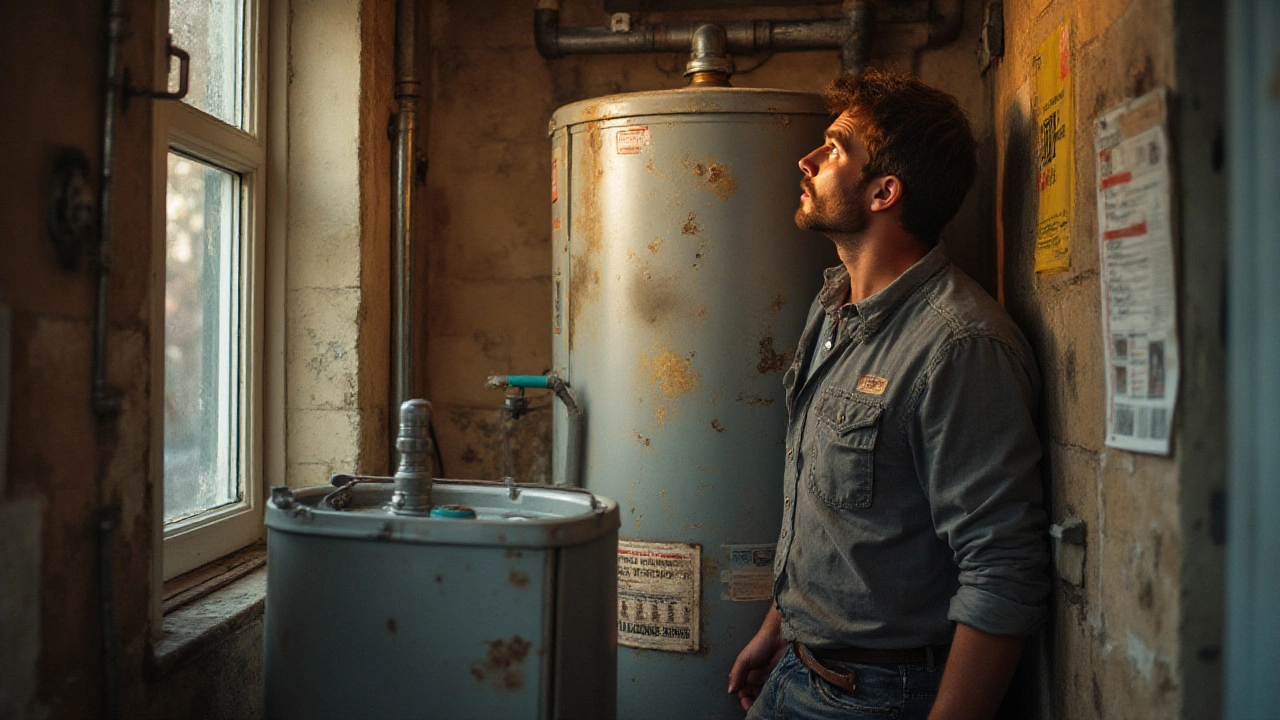20-year-old water heater acting up? Dive into real-world facts, costs, safety tips & pro advice to decide whether you should repair or replace your aging water heater.
Fix vs Replace Water Heater: How to Choose the Right Move
Got a water heater that’s acting up? Before you call anyone, take a quick look at its age, symptoms, and repair quotes. The right answer – fixing it or swapping it out – can save you cash and keep your showers hot.
When fixing it makes sense
If the unit is under ten years old and the problem is something simple, repair is usually the cheaper route. Leaking a valve, a faulty thermostat, or a stuck pilot light often costs under £150 when a pro handles it. Even a DIY drain and flush can clear sediment that makes the heater work harder.
Check the warranty, too. Many manufacturers cover parts for the first five years, and some extended plans last a decade. If your heater is still under warranty, a repair won’t dent your budget.
Safety is another clue. If the heater still powers on, heats water, and the leak is localized, you probably don’t need a full replacement. A quick visual inspection – look for rust on the tank, strange noises, or water pooling at the base – will tell you if the damage is limited.
When replacement is the smarter choice
Age is the biggest factor. Water heaters typically last 8‑12 years. Once you hit that range, corrosion builds up, the anode rod weakens, and efficiency drops. If you’re already paying £200‑£300 for a repair on a ten‑year‑old unit, a new tank will likely pay for itself in lower energy bills.
Energy efficiency matters. Modern tanks use better insulation and smarter heating elements, shaving up to 20% off your electricity or gas bill. If your current heater is an old model, the upfront cost of a replacement (about £800‑£1,200 installed) can be offset within a few years.
Performance problems like lukewarm water, inconsistent temperatures, or frequent trips of the breaker are red flags. Those issues usually point to internal wear that a simple fix can’t solve.
Finally, consider the space and installation cost. If you’re moving house or remodeling the utility area, swapping the heater gives you a chance to upgrade the location, add better venting, or switch from a tank to a tank‑less system.
In short, if your heater is relatively new, the fault is isolated, and the repair quote is low, go ahead and fix it. If the unit is old, inefficient, or the repair bill starts to climb, replace it and enjoy steadier hot water and lower energy use.
Need a hand? A qualified technician can give you a clear cost breakdown and help you decide whether a repair or a new install fits your budget and comfort needs.

